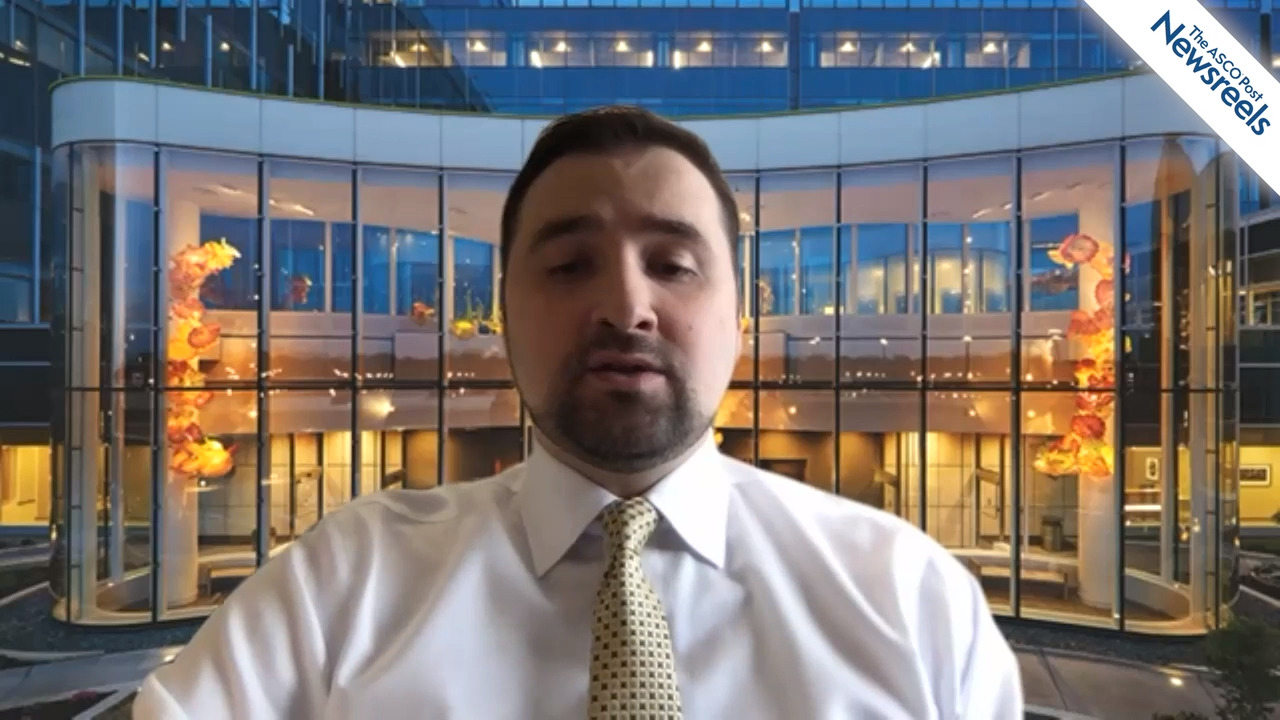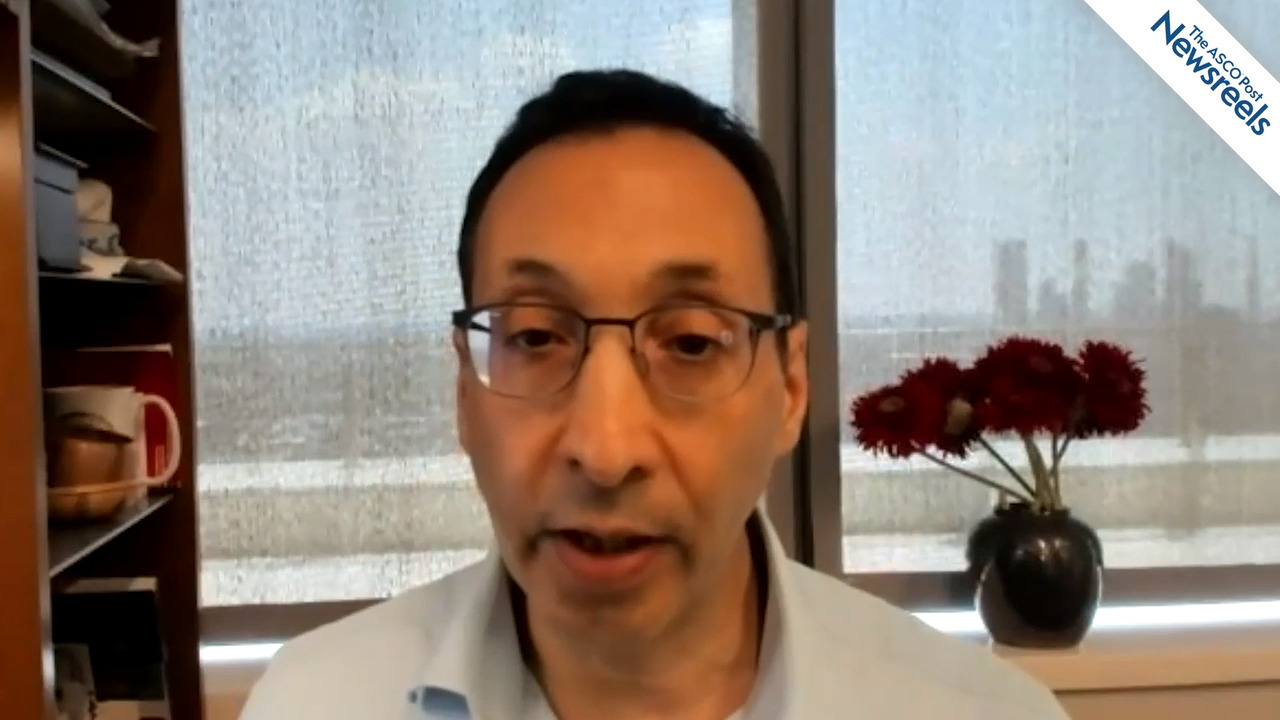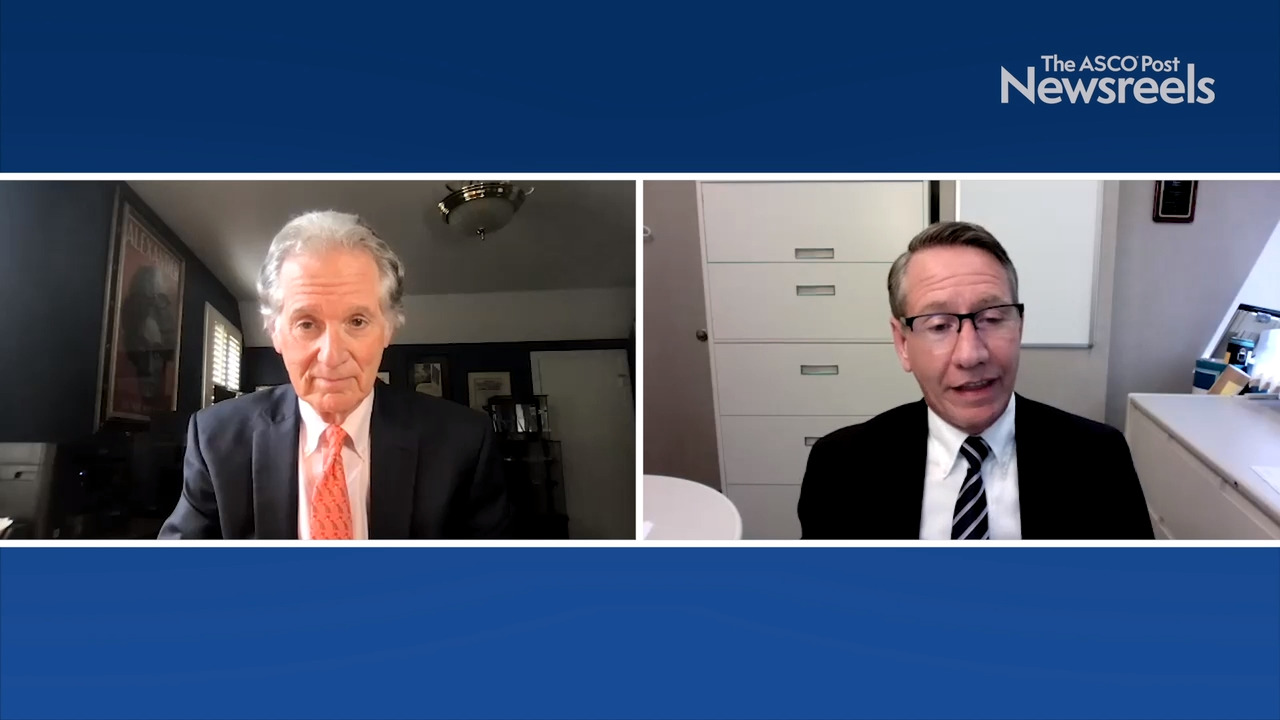Sonali M. Smith, MD: Can CNS Prophylaxis Prevent Secondary High-Grade B-Cell Lymphomas?
2021 Pan Pacific Lymphoma Conference
Sonali M. Smith, MD, of the University of Chicago, discusses the many uncertainties in preventing secondary high-grade B-cell lymphomas, which have a poor prognosis; how to discern the patients at highest risk; and whether prophylaxis with monoclonal antibodies such as rituximab can mitigate the likelihood of secondary lymphoma.
The ASCO Post Staff
Nina Shah, MD, of the University of California, San Francisco, discusses triplet drug combinations that are the current standard of care for transplant-eligible and -ineligible patients with multiple myeloma, as well as quadruplet therapies that demonstrate depth of response in newly diagnosed cases, where they may become the standard of care along with transplantation and maintenance treatments.
The ASCO Post Staff
Jared E. Matya, PharmD, BCOP, of Nebraska Medicine, discusses oral agents and their toxicity profiles, as well as newer-generation agents that are often more selective and better tolerated. He describes how toxicity monitoring and management help to ensure patients with cancer remain on treatment.
The ASCO Post Staff
Muhamed Baljevic, MD, of the University of Nebraska Medical Center, reviews the outlook for treating patients with relapsed and refractory multiple myeloma, the rapidly expanding array of therapeutic options with novel mechanisms of action, and the challenges of sequencing treatments.
The ASCO Post Staff
Steven M. Horwitz, MD, of Memorial Sloan Kettering Cancer Center, discusses treatments for advanced mycosis fungoides and Sezary syndrome, including brentuximab vedotin and mogamulizumab, and how best to choose among treatments.
The ASCO Post Staff
Stephen M. Ansell, MD, PhD, of the Mayo Clinic, and Bruce D. Cheson, MD, of the Lymphoma Research Foundation, engage in a lively debate about CAR T-cell therapy, how it fits in with immunotherapy and nonchemotherapy approaches, and how to decide which treatment is right for which patient, especially given the many challenges of obtaining CAR T cells.





